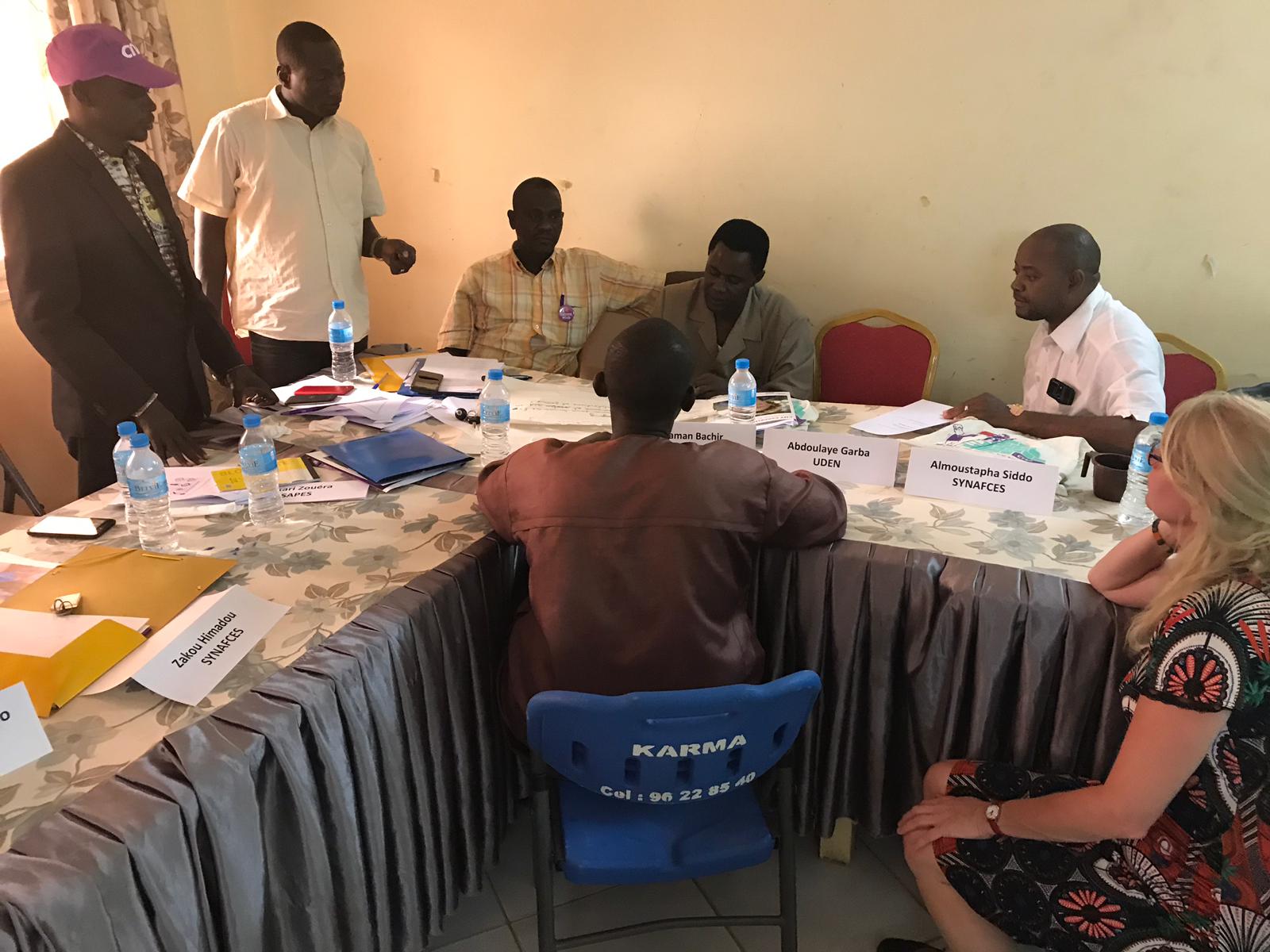
This training is a continuation of two previous ones. Some participants have done all three; others are new. We’ve seen how these earlier trainings have had an effect on the work of our union partner in Niger.
The programs have enabled union negotiators to play a more constructive role in the social dialogue process. They are more prepared and equipped for meetings and they contribute more effectively to the conversations.
Win-Win
We’ve put together an interesting program which includes negotiation techniques such as Win-win, paying attention to your relationship with your negotiation partner, and developing alternative strategies to fall back on before you enter the meeting.
Of course these techniques aren’t completely new to the participants. But it can be useful to theoretically analyze a real-life situation or learn how to use a model on how to negotiate and communicate. These topics lead to some energetic discussions. So many hands raised. Everyone wants to be heard.
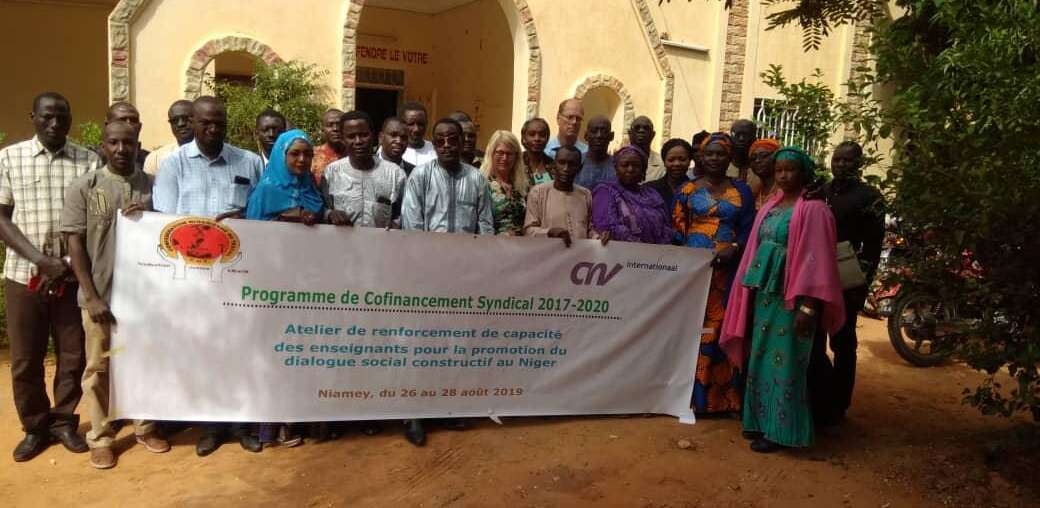
It’s also interesting to look back. Two years ago, working in groups was completely new to some of the participants. It was often chaotic. Now, they’re experienced and the groups form themselves and run smoothly.
Using silence
After showing a short film on negotiation techniques, we asked which one they could use now. One of the participants answered, “A pause of silence.” Don’t react immediately, but take a moment and be silent. This allows some time to reflect and make necessary adjustments, despite the difficult situation they have to function in. It was a day full of energy! We look forward to the same tomorrow!
Day 2—The phase before the strike
Tuesday focuses on conflict management. The goal of this training is to improve the social dialogue process. Practically speaking, this means that unions shouldn’t strike as their first resort.
Schools used to be closed for months
A lot has changed in the Niger’s education sector. In previous years, schools closed down for months at a time due to strikes. Now, after the completion of two of our trainings, there were no strikes at all last year! However, the unions still haven’t achieved what they’d like. Social dialogue has come to a stand-still. So today we’re looking at how conflicts arise and what types of behavior are appropriate for different conflict situations.
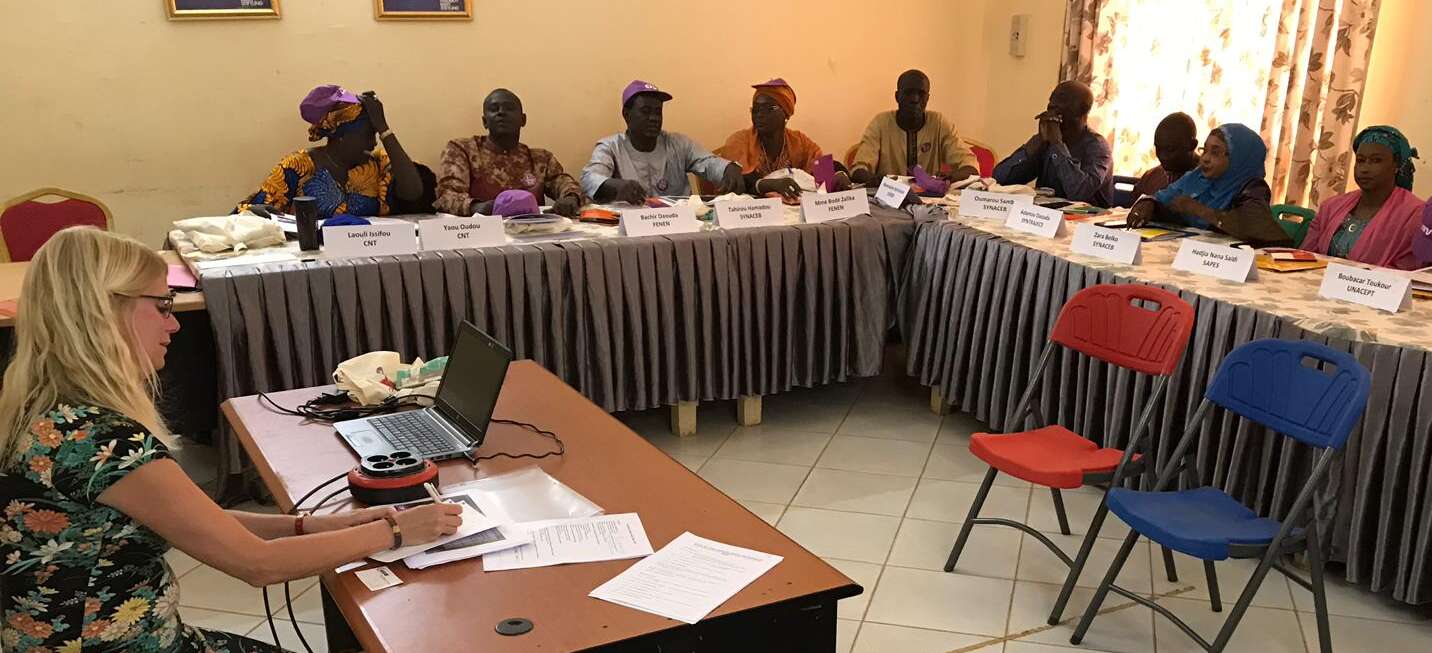
One of the participants astutely remarks, “Usually when we can’t reach a consensus, then we turn to power plays. Now I see that there’s an in-between phase, where you can use arbitration or legislation as support.”
Emotions and Identity
The afternoon focuses on the psychological and emotional aspects of conflict. You are always affected by your own emotions, background, and identity, even in a union conflict situation.
What role does this play? All of the participants want to share how they deal with conflict situations. “These things seem small and insignificant, and perhaps not relevant to a “major” negotiation, but actually, they’re very important. And if you ignore them, you won’t be successful!” one of the participants accurately notes. We’re happy to hear these responses!
Tomorrow we’ll go on with “Train the Trainer”. The participants will present what they’ve learned. On with improved social dialogue in education in Niger!
Day 3—Train the trainer-- Post-its all over the room
On Wednesday, the course focuses on train-the-trainer. The goal is to help the participants in being able to share what they’ve learned with their colleagues and associates. The morning is spent preparing for the afternoon session. In the afternoon, participants will be able to give a course themselves.
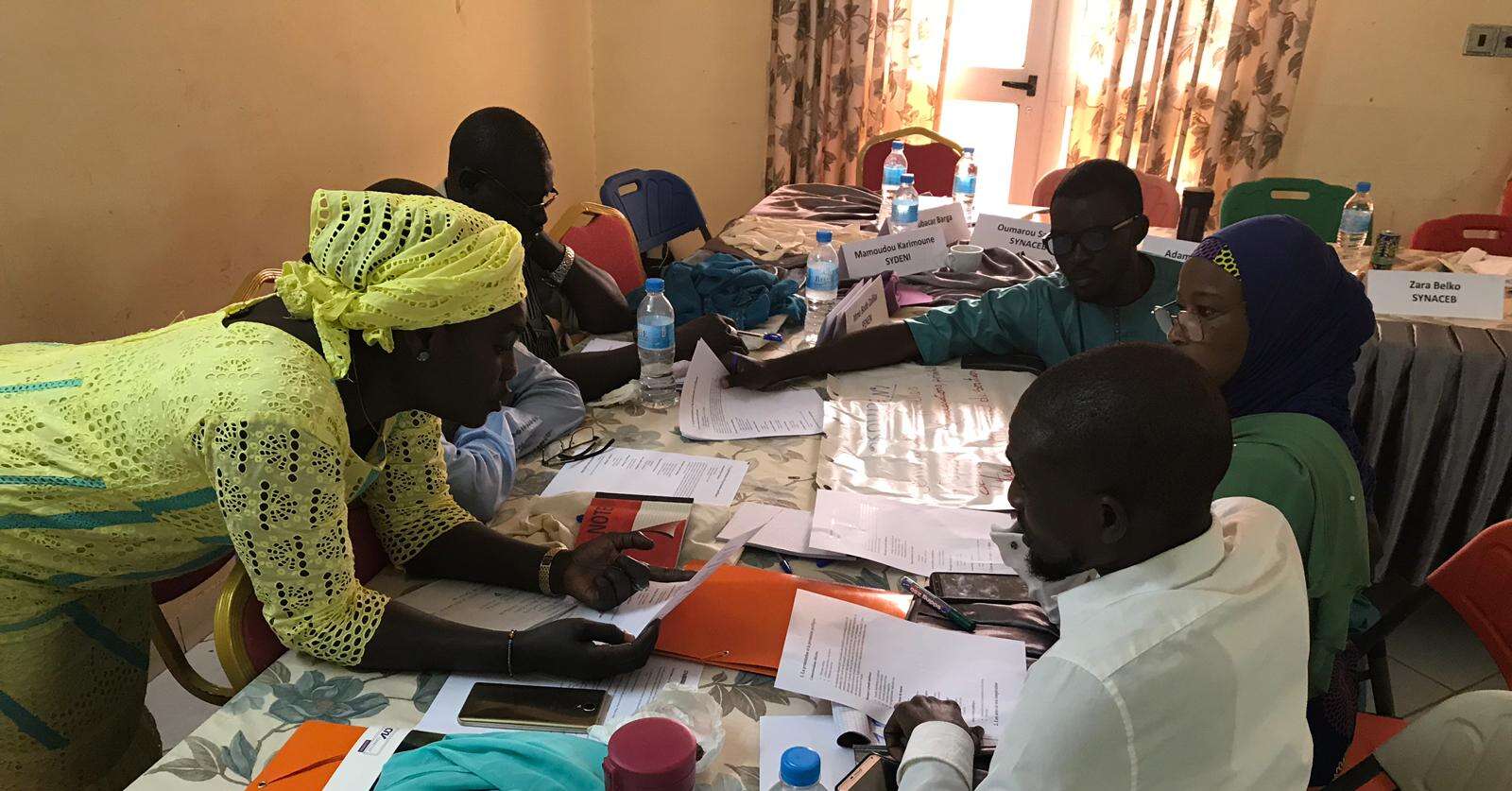
Each group provides a session/lesson. Such enthusiasm! Skits are created to show how to negotiate successfully. Post-it notes cover the room during the brainstorming session. Everyone gets to take their turn with presenting.
Oil for the stalled motor of social dialogue
Today we’re also thinking about the message we can best take to the minister. We want to oil the stalled motor of the social dialogue process. The next day we actually visit the minister who is involved in the education sector.
Like in the Netherlands, multiple ministers are involved. But here in Niger, there are quite a few more. We have a good conversation. The social dialogue process is declared open again! Both sides want the school year to begin well.
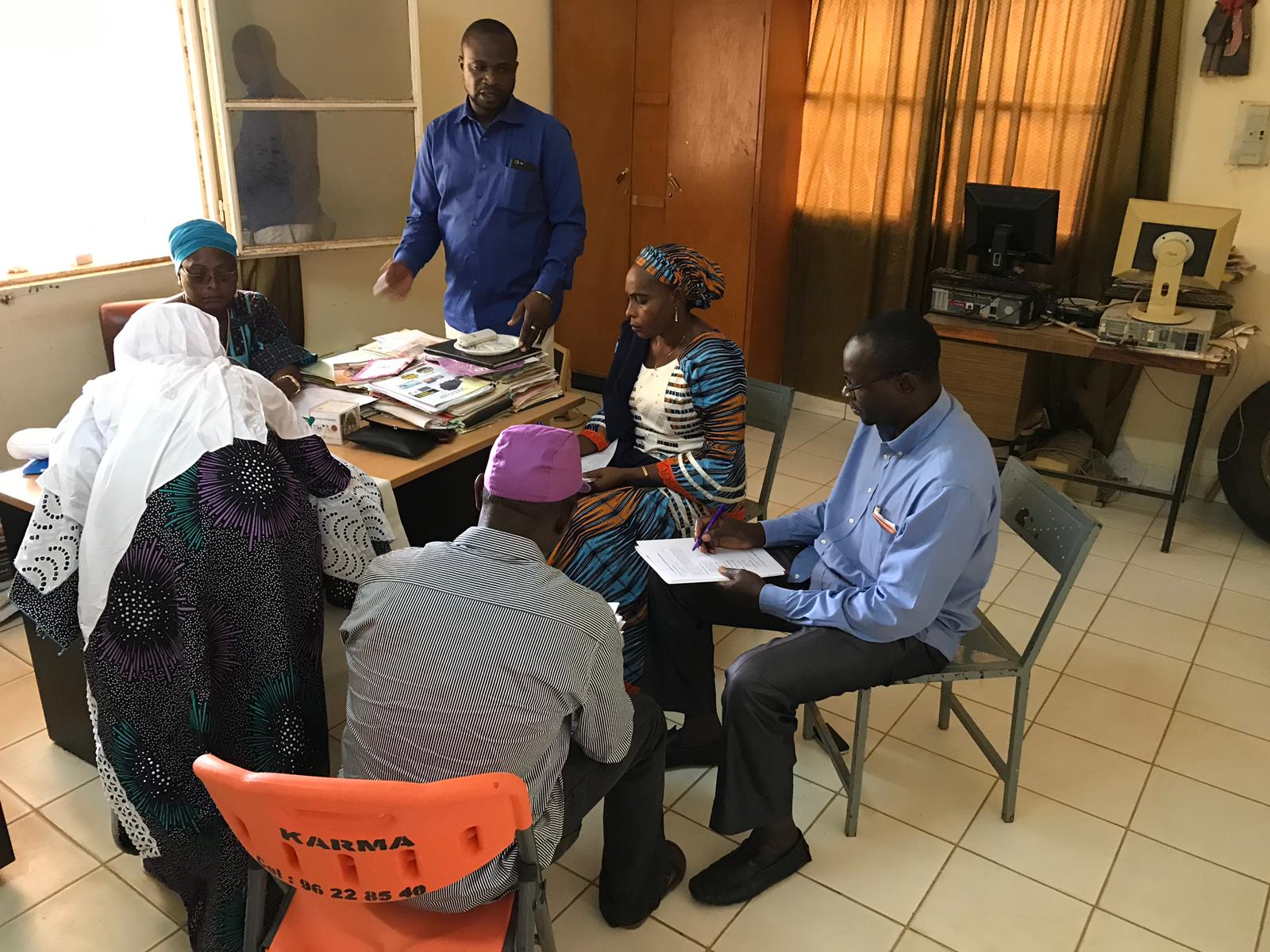
Transfers
We also discuss some difficult topics, like the transfer of teachers to remote rural areas, far away from their families. Since many teachers are women, these transfers have a significant impact and the teachers cannot combine their work with their family life.
But the surplus of teachers in Niamey and the shortages in the country leave the ministry in an extremely difficult position as well. We diplomatically say that we can understand the need to sometimes implement such transfers. However, when union membership is involved in the decision, we have major concerns.
Afterwards, we take time with the union leader to reflect on how the unions can play a greater role in negotiating the conditions for transfers. Now the transfers are life-long! There have to be ways to negotiate for different time frames—maybe a rotation system?
This is what unions are for. We hope we’ve been able to be a union for them this past week. So they can also be a better union for their own members. For Niger.
Annemieke Schoemaker
Niger, 26-28 August 2019